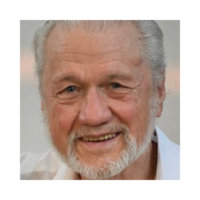Introduction
Whatever value these poems may contain they are indicative only of momentary openings to the splendour of Sri Aurobindo’s poetic force descending in me and illumining and quieting my mind so the words and images might flow freely. I have never studied poetry nor do I know the techniques of poetic language, syntax or metre. I put on paper whatever the inner being can catch in fleeting glimpses and occasional insights of the soul. I take little credit, however, for to whatever small extent I have succeeded I am humbly grateful for His largess; wherever there are faults or glaring inadequacies they are due solely to my lack of receptivity.
Most often poetry comes quietly and unexpectedly descending into the waiting mind, sometimes in lines or phrases, at other times born complete. The comments after a few of the poems are from K.D. Sethna, renowned scholar and poet whom I have had the honour to call “elder brother”. The name given him by Sri Aurobindo and by which he is known to many, is Amal Kiran, “A Clear Ray”. It is through his kind encouragement that the first poems that came to me were published in the journal Mother India,, which he began and edited for many years.
My opening to poetry began in the late 1960’s in Auroville, the model township being built north of Pondicherry and about 100 miles south of Madras near the Bay of Bengal in Southern India. During the past few years poetry has occasionally flowed more freely but hardly a line came during the 1980’s. The enclosed offerings represent a period of approximately 30 years.
Many of these poems reflect a passage through the “Dark Night of the Soul” In a letter to Dilip Kumar Roy, Sri Aurobindo wrote the following:
“.....stick on persistently till the dawn comes—it surely will if you resist
the temptation to run away into some outer darkness which it would have
much difficulty in reaching. . . . these are things which come almost
inevitably in one degree or another at a certain critical stage through
which almost everyone has to pass and which usually last for an
uncomfortably long time but which need not be at all conclusive or
definitive. Usually, if one persists, it is the period of darkest night before
the dawn which comes to almost every spiritual aspirant. It is due to a
plunge one has to take into sheer physical consciousness unsupported by
any true mental light or by any vital joy in life, for these usually withdraw
behind the veil, though they are not, as they seem to be, permanently lost.
It is a period when doubt, denial, dryness, greyness and all kindred things
come up with great force and often reign completely for a time. It is after
this stage has been successfully crossed that the true light begins to come,
the light which is not of the mind but of the spirit. The spiritual light no
doubt comes to a certain extent and to a few to a considerable extent in the
earlier stages, though that is not the case with all for some have to wait
till they can clear out the obstructing stuff in the mind, vital and physical
consciousness and until then they get only a touch now and then. But
even at the best, this earlier spiritual light is never complete, until the
darkness of the physical consciousness has been faced and overcome. It is
not by one’s own fault that one falls into this state; it can come when one
is trying one’s best to advance. It does not really indicate any radical disability
in the nature but certainly it is a hard ordeal and one has to stick very firmly to
pass through it.”

